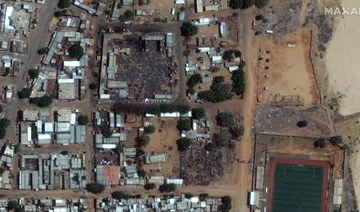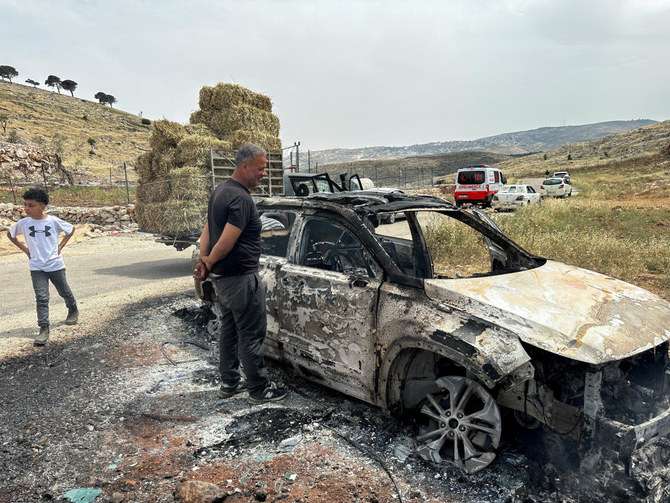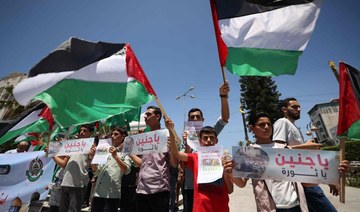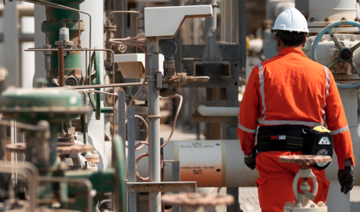KHARTOUM: Air strikes killed civilians and pummeled multiple parts of the Sudanese capital on Saturday, residents said, as mediators pushed the warring factions toward a new cease-fire.
Fighting between the Sudanese army and paramilitary Rapid Support Forces is entering its third month with neither side gaining a clear advantage.
The war has displaced 2.2 million Sudanese and killed hundreds, and has sent the war-weary Darfur region into a “humanitarian calamity,” the United Nations has said.
The army has the advantage of air power in Khartoum and its neighboring cities Omdurman and Bahri, while the RSF has embedded itself in residential neighborhoods. On Friday and Saturday the army appeared to ramp up air strikes, hitting several residential neighborhoods.
In a speech posted by the army on Friday, top general Yassir Al-Atta warned people to stay away from homes the RSF had occupied. “Because at this point, we will attack them anywhere,” he said to cheers. “Between us and these rebels are bullets,” he said, appearing to dismiss mediation attempts.
The Khartoum health ministry confirmed a report by local volunteers on Saturday that 17 people including five children were killed in the Mayo area of southern Khartoum and 25 homes destroyed.
The strike was the latest in a series of air and artillery attacks on the poor and densely populated district of the city where most residents are unable to afford the cost of leaving.
AIR STRIKES
Late on Friday, the local resistance committee said 13 people had been killed by shelling in Al-Lammab in western Khartoum, calling the neighborhood an “operations zone.”
The RSF on Saturday said it brought down an army warplane in the Nile, west of Khartoum.
Air strikes in central and southern Omdurman continued from Friday into Saturday, impacting homes and killing one person, according to the local committee in the Beit Al-Mal neighborhood.
Residents said three members of a family were killed in the Sharq el-Nil district after an air strike on Friday.
In El-Geneina, in West Darfur, more than 270,000 have fled across the border to Chad, after more than 1,000 people were killed by attacks that residents and the United States have blamed on the RSF and allied militias.
Within Khartoum, the war has cut off the millions who remain from electricity, water, and access to health care, and residents have had to ration food. They report widespread looting.
Talks in Jeddah, which US and Saudi Arabian mediators had threatened to adjourn, were now addressing a possible new three-day cease-fire, as well as a five-day cease-fire during the upcoming Eid holiday, two sources said.
A series of cease-fires have failed to bring about a complete end to fighting or facilitate humanitarian access.
Air strikes hit Sudanese capital, killing 17 including 5 children
https://arab.news/camca
Air strikes hit Sudanese capital, killing 17 including 5 children
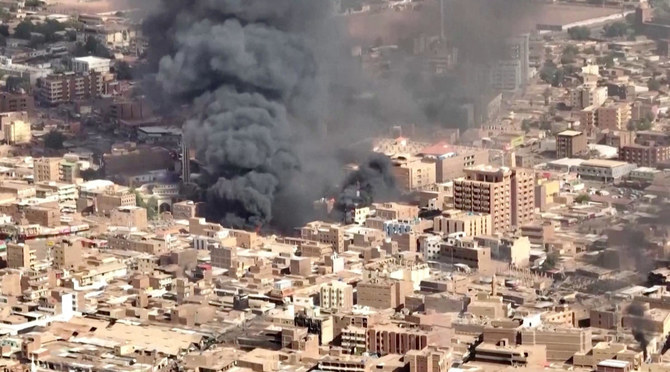
- Fighting between Sudanese army and paramilitary enters third month with neither side gaining advantage






